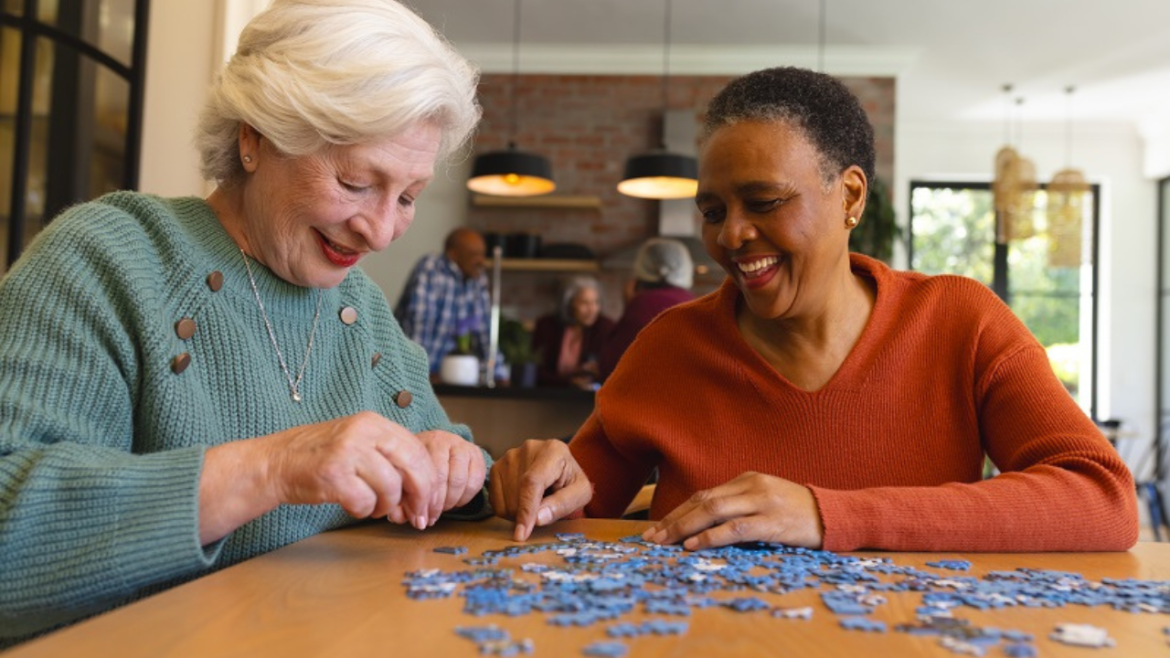Can Puzzles Help Seniors Cognitively?
As we age, keeping the mind active becomes just as important as maintaining physical health. Cognitive decline is a natural part of aging, but the good news is that mental stimulation can significantly slow its progression.
Among the many activities available, puzzles have emerged as a surprisingly effective tool for seniors to maintain mental sharpness. These seemingly simple games offer more than just entertainment—they engage the brain, challenge problem-solving skills, and promote emotional well-being.
The Science Behind Brain Stimulation
Engaging in puzzles triggers multiple areas of the brain, including those responsible for memory, logic, and spatial awareness. When seniors work on a jigsaw, crossword, or Sudoku, their brains create new neural pathways, fostering what scientists call neuroplasticity. This ability to reorganize and form new connections helps compensate for age-related cognitive decline.
Research has consistently shown that seniors who participate in mentally stimulating activities experience slower memory loss compared to those who remain passive. Each completed puzzle provides a sense of achievement, reinforcing brain activity and confidence simultaneously.
Emotional Benefits of Puzzles
Beyond cognitive gains, puzzles offer profound emotional benefits for seniors. Completing a puzzle reduces stress by shifting focus away from worries, providing a meditative sense of calm. For many older adults, feelings of loneliness and isolation can accelerate cognitive decline.
Working on puzzles, especially in group settings, encourages social interaction, conversation, and shared laughter. These emotional connections are crucial for maintaining overall brain health, as studies link social engagement to reduced risks of dementia and depression.
Choosing the Right Puzzles
Not all puzzles affect the brain equally, and selecting the right type can make a significant difference. Complex jigsaw puzzles with detailed images can enhance visual-spatial skills, while word games and crosswords challenge memory and language abilities. Logic-based puzzles, such as Sudoku or number sequences, engage problem-solving and critical thinking skills.
It is important to match puzzle difficulty to the senior’s cognitive level to avoid frustration, ensuring a balance between challenge and enjoyment. Over time, increasing puzzle complexity can further stimulate mental growth, promoting long-term cognitive resilience.
Integrating Puzzles Into Daily Life
Consistency is key when it comes to cognitive benefits. Integrating puzzles into a daily routine ensures that the brain receives regular stimulation. Even a short 15-20 minute puzzle session can activate multiple neural pathways, providing meaningful cognitive exercise.
Combining puzzle activities with other mental exercises, such as reading, memory games, or creative hobbies, further strengthens cognitive health. The goal is to create a sustainable, enjoyable habit rather than a forced task. When puzzles become a regular part of life, seniors experience not only improved brain function but also a sense of purpose and accomplishment.
Supporting Cognitive Health Holistically
While puzzles are highly effective, they work best as part of a holistic approach to senior wellness. Adequate sleep, balanced nutrition, physical activity, and social interaction all contribute to cognitive longevity. Puzzles complement these lifestyle factors, offering a mental workout that keeps the brain sharp.
Caregivers and family members can play an essential role in encouraging puzzle activities, making the experience collaborative and emotionally rewarding. In doing so, seniors not only exercise their minds but also build meaningful connections that enhance their overall quality of life.
Conclusion
The evidence is clear: puzzles are more than a pastime for seniors—they are a powerful cognitive tool. Engaging the mind, fostering neuroplasticity, and providing emotional enrichment, puzzles contribute significantly to healthy aging. By incorporating daily puzzle activities into a senior’s routine, families and caregivers can help maintain memory, problem-solving abilities, and overall mental wellness.
The joy of completing a challenging puzzle, combined with the cognitive and emotional benefits it brings, makes puzzles an essential part of aging well. In a world where cognitive decline is often inevitable, puzzles offer a simple, effective, and enjoyable way to support seniors’ mental health every day.

